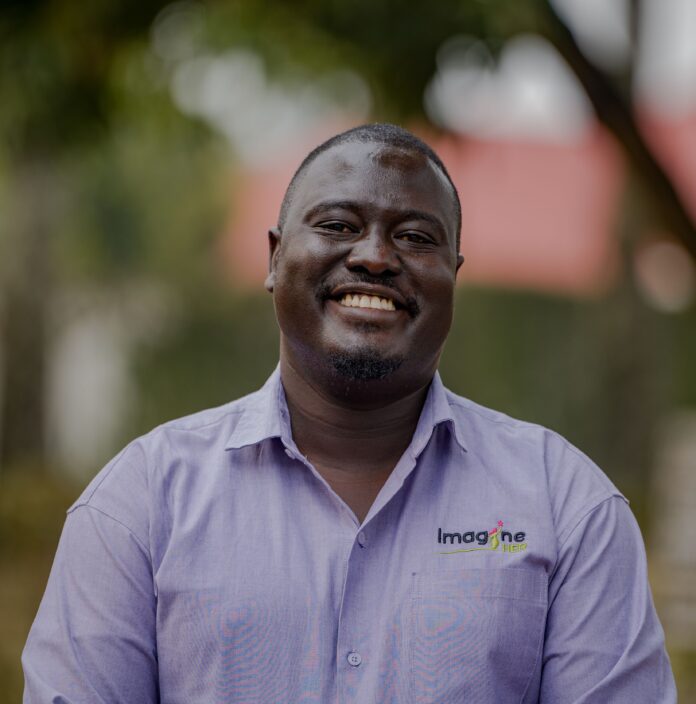By Nathan Okiror – Team Leader, Imagine Her
On July 15, the world comes together to mark World Youth Skills Day—a moment to reaffirm our commitment to equipping young people with the tools they need to thrive. The United Nations established this day in 2014 to recognize the strategic importance of skills for employment, entrepreneurship, and sustainable development.
This year’s theme, “Youth Empowerment through AI and Digital Skills,” calls on all of us —governments, development actors, and communities — to act with urgency and vision. As artificial intelligence transforms economies and digital technologies reshape entire industries, it is essential that young people, particularly in Africa, are not left behind.In Uganda, the stakes are high.
The Uganda National Bureau of Statistics (UNBS) 2024 census reveals that 42.6% of young people aged 15–24 are not in employment, education, or training (NEET). At the same time, youth unemployment among the broader working-age population remains high at 12.3%.According to the World Bank, approximately 700,000 young people enter the job market in Uganda each year, but only 75,000 new jobs are created.
With limited options, many turn to low-income, informal self-employment, often without the skills, mentorship,network or capital to grow.A 2023 report by the National Planning Authority (NPA) paints an even more worrying picture.
The report reveals significant regional disparities. NEET rates are especially high in regions like Bukedi (61.4%), Lango (49.3%), Elgon (44.1%), Busoga (43.5%), Bunyoro (42.5%), and Kigezi (42.1%). A majority of NEETs come from poor rural households, lack formal skills (58%), and face added vulnerabilities such as disability and substance abuse.
The 2024 Entrepreneurship Index paints a similar picture, particularly around technology access. According to the findings, 53.4% of micro, small, and medium enterprises (MSMEs) lack access to either a smartphone or a computer, tools that are now fundamental to modern business operations.
Only 9.8% have access to both, limiting their ability to leverage digital services, communicate with customers, manage transactions, and innovate.
Although 35.5% of MSMEs reported having a smartphone, this number remains low by global standards. Meanwhile, software tools like accounting platforms remain underutilized, reducing efficiency and transparency.
At Imagine Her, we believe the solution lies in an integrated approach. At the core of our Social Enterprise & Innovation Program (SEIP) is a belief that the rural young women and youth are the true experts on the societal challenges their communities face, particularly in agriculture and green energy.
We embrace a human-centered and market-driven approach, equipping these young leaders with the skills, resources, and networks to launch and scale ventures that directly address key societal challenges.
The cornerstone within this approach is our Skills Lab—a three-month MBA-style training. It empowers rural young women and youth with growth-oriented mindsets and expertise in social entrepreneurship, human-centered design, systems thinking, and investment readiness.
Through design thinking, participants learn to identify challenges, generate ideas, build prototypes, and test solutions, fostering innovation from the ground up.
After participants complete our Skills Lab, we provide patient, returnable capital to the most innovative and viable startup ideas that align with Imagine Her’s financing criteria.
This early-stage investment ensures that participants can launch their ventures with the resources they need to get started particularly in sectors like agriculture, clean energy while integrating technology where upfront costs can be a barrier.
Once the businesses are up and running, we offer tailored, ongoing business development support to help them refine their products, grow sustainably, and navigate market challenges.
This support is adapted to each entrepreneur’s needs and may include mentorship, technology adoption, market linkages, operational and compliance guidance.
We recognize that meaningful empowerment in today’s economy must include digital skills. That’s why we are embracing digital transformation across our program. We are piloting the use of smartphones, AI among our entrepreneurs to enable them to track operations, manage inventory, and record transactions more efficiently.
Our staff are already using AI tools to enhance training delivery, curriculum development, and internal communications. We are also planning to integrate AI literacy into our curriculum to ensure young people are not just consumers of technology but active participants in shaping its use for good.
To extend real-time support, we have embedded a ticketing system on our website, allowing entrepreneurs to raise business development queries and receive timely assistance from our team. These tools are critical steps toward building a more responsive, inclusive, and digitally-enabled entrepreneurial ecosystem.
But we cannot do it alone. If we are serious about achieving SDG 8 (Decent Work and Economic Growth), SDG 5 (Gender Equality), SDG 9 (Industry, Innovation, and Infrastructure),SDG 4 (Quality Education), then youth skills development must be at the center of our national and global agendas.
This means increasing investment in digital skills training, promoting mentorship, supporting youth-led social entrepreneurship, and ensuring that young people are equipped to thrive in an increasingly technology-driven world.World Youth Skills Day is more than a celebration. It is a call to action.
To governments and philanthropy; leverage partnerships to invest and scale locally youth led livelihood and entrepreneurship programs that equip young people with the skills, mentorship, and resources to build sustainable, community-driven ventures.
To the private sector; collaborate with youth-led enterprises through mentorship, market access, and seed capital to help them grow into job-creating, market based locally rooted businesses.
To educators and training institutions; align learning with practical, future-ready skills—such as financial literacy, innovation, and enterprise development—to prepare youth for real-world challenges and opportunities. To families and communities, nurture and support your young people—believe in their potential to lead, innovate, and drive meaningful change in their communities.
At Imagine Her, we’ll keep doing our part creating opportunities for young people to lead, innovate, and thrive. Because when we equip rural young women and youth with the right skills, we do more than prepare them for the future, we empower them to shape it.



